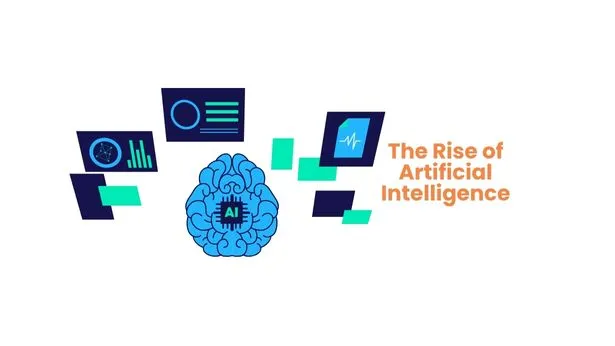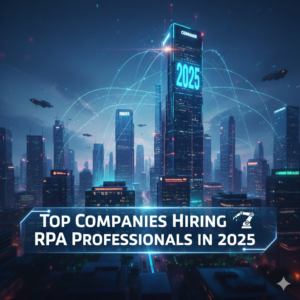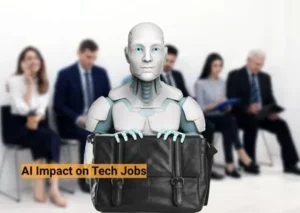How Artificial Intelligence will Change the Tech Job Market
The AI impact on tech jobs is already spreading across sectors, with implications likely to increase. As artificial intelligence continues to grow and expand at an unprecedented pace, the technology sector continues to undergo a revolutionary change. This change is starting with automation and extending to intelligent systems performing an increasingly complex array of tasks. AI is changing how we work, where we work, and the skills we need for work.
In this blog, we will examine the future of tech jobs with AI, what the trends of AI are in changing employment patterns, and what technologists can do right now to prepare themselves to keep up with developments.
The Rise of Artificial Intelligence in the Tech World

Artificial intelligence is no longer a thing of the future; it is already in the tools and systems we use every day in our lives. Whether natural language processing, machine learning, or computer vision, AI is included in applications ranging from recommendation engines to cybersecurity applications.
The rapid growth of AI technologies is sufficient for the job market, especially in the technology industry. While change can be difficult, it also means new opportunities for innovation, creativity, and growth.
The Role of AI in Reshaping Tech Careers
With the evolution of AI systems to perform tasks earlier only done by humans, now tech is here. Here are examples of how AI and automation in tech careers are taking over:
1. Automation of Repetitive Tasks: One of the more immediate results of AI is the ability to automate repetitive and time-intensive tasks. For instance, quality assurance processes, system monitoring, and very simple coding tasks can all be completed entirely by AI. This does not equate to job loss, but it means work can be done that achieves higher value to organizations, like strategic planning and innovation.
2. Job Role Change: AI has changed jobs instead of eliminating them. For example, a software developer may spend less time writing code and more time either integrating AI tools or working on machine learning models. The new tech jobs of the future with AI will be hybrid roles encompassing domain knowledge and fluency in AI.
3. New Careers: Along with every wave of technology comes entirely new careers. AI is creating roles such as:
- AI Ethics Officer.
- Machine Learning Engineer.
- Data Annotator.
- AI System Trainer.
- Algorithm Auditor
These roles give way to the mix of technical aptitude, ethical reasoning, and adaptability that will be in high demand shortly.
Skills in Demand for the AI-Driven Future
As technology professionals enter into an Artificial Intelligence (AI) job marketplace, upskilling and reskilling will be an ongoing process. The following are some of the most essential skills to have moving into the AI world:
1. Data literacy: Understanding how data is collected, analyzed, and interpreted.
2. Machine learning basics: Understanding supervised, unsupervised, and reinforcement learning.
3. Cloud computing literacy: Experience with cloud platforms such as/or similar to AWS, Azure, and Google Cloud.
4. Cybersecurity literacy: Systems will not only be more intelligent and capable, but the threats will be as well.
5. Ethics: Understanding the morality behind AI and decision-making based upon pre-programmed statistics.
Soft skills such as critical thinking, flexibility, communication, and creativity will also be extremely important as AI continues to take over technical roles.
Challenges from Artificial Intelligence in the Job Market
Although there are numerous benefits, AI and automations within tech careers also have several risks, including:
1. Job/Career Displacement: Some tasks, especially those that are task-oriented and rule-based, are likely to be at greater risk. For instance, some entry-level and/or junior coding roles, manual Quality Assurance testing, and even basic IT support roles could all be at some risk. Job/career professionals within these roles should proactively prepare for changes in the workplace and maintain up-to-date learning.
2. Talent Gap: While there is a burgeoning demand for very specific AI specialists, with, of course, fewer trained professional AI specialists on the market, this gap creates a wonderful opportunity for anyone willing to invest time in learning AI technologies and become a specialist.
3. Ethical and Regulatory Issues: The introduction of AI also raises ethical issues such as algorithm/bias, data privacy, and accountability issues. As new entrants into the AI workforce may not be familiar with the breadth of AI’s ethical implications, coding and developing the AI of the future must make ethics an indispensable part of their repertoire.
Also Read: 5 Myths About Artificial Intelligence
How Companies are Responding to This
As organizations worldwide face the AI impact on tech jobs, they are reevaluating their workforce strategies. Many organizations are investing in reskilling and upskilling, sponsoring educational partners.
For example, tech leaders such as Google, Microsoft are implementing AI training programs to help both their employees and the public develop essential AI skills. Similarly, startups are forming, focused only on closing the AI skills gap through bootcamps and online certifications.
Final Call on Role of AI in Tech Job Market
The influence of AI is transforming technology jobs, opening up a new age of opportunities. Some jobs will be lost, new jobs will be created, and many will change. With the right thoughts, skills, and flexibility, AI can offer a massive opportunity for career growth and innovation. By planning and getting ahead of the curve now, workers can ensure they not only survive but thrive in both the natural evolution of AI and automation in technology careers as they continue to unfold.
As AI begins to take hold everywhere in technology, one thing is clear: how AI is changing tech employment is not a question of what jobs we are losing; it has become about what new jobs and opportunities we are creating.
Are you ready to future-proof your career and stay ahead in the AI-driven tech industry? Start learning AI skills, embrace automation tools, and explore how the changing job market can work for you, not against you.
Need help with career planning or writing about AI and tech trends? Whether you’re a student, job seeker, or working professional, partnering with a tech employment agency can help you navigate the transition. Contact Time Agency Group today to discover job opportunities, career advice, and upskilling options tailored to the evolving AI landscape.
FAQs on Future of Tech Jobs with AI
Q1. What is AI doing for tech jobs?
AI is changing tech jobs by automating some tasks, redefining role requirements, and allowing new career fields such as machine learning and data science.
Q2. Is AI going to take all tech jobs?
Not all tech jobs. Some tasks may be automated, but many tech jobs will be redefined, and some new tech jobs will emerge, particularly for the creation and maintenance.
Q3. What new skills will be required in tech jobs due to the increased implementation of AI?
The required skills demanded will include data literacy, machine learning, familiarity with cloud computing, cybersecurity, and ethical standards in the implementation of AI.
Q4. What impact is artificial intelligence having on the employment sector in general?
AI is altering demand to be more tech-fluent and adaptable, with an emphasis on learning and being adaptable and digitally fluent across industries.
Q5. Are there technology jobs immune to AI?
Creativity, strategic vision, and exactly how people interact with each other are difficult to replicate with machines in jobs.
Q6. What are the advantages provided by AI and automation to tech-related careers?
AI can provide work efficiencies and make redundant, mundane tasks so that tech professionals’ efforts can be put towards highly impacting considerations.
Q7. Are beginners able to learn AI skills to remain competitive?
Yes! There are many great beginner courses and resources available online, with certifications in AI, Python, machine learning, and more.
Q8. How is AI changing tech jobs in larger companies?
Companies are putting money into reskilling programs and changing the nature of the jobs toward AI embedding, analytics, and system management to remain competitive.
Related Article: How To Learn Artificial Intelligence






